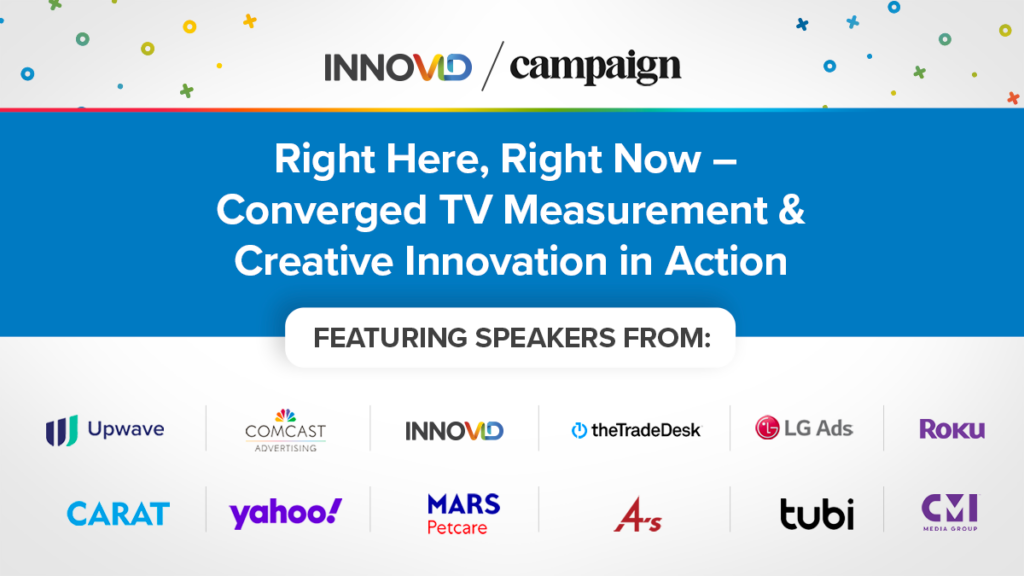STUDY: Nearly One-Quarter of Consumers are More Willing to Share Personal Data with Brands
NEW YORK, NY (August 13, 2020) – Innovid, the only independent advertising and analytics platform built for television, today announced additional findings from its commissioned research report, 2020 Consumer Attitudes on Personalized Advertising. The report sheds light on the personalization and privacy preferences of the “Now Consumer” as people continue to build new habits for how they socialize, shop, work and respond to online advertising amid COVID-19. After polling more than 1,000 US adults in July 2020, the findings show that nearly a third of respondents like the ads they see to be personalized and 30% like brands more when they personalize ads.
“The data shows brands aren’t doing enough to personalize across channels, although consumers have voiced a desire for it, which leads to a consumer ad experience that is lacking or low impact,” said Stephanie Geno, Senior Vice President of Marketing at Innovid. “To adapt to the needs and wants of the Now Consumer, marketers need to prioritize personalization and make it a key part of their omni-channel strategy.”
Today, only 3% of US companies currently leverage true omnichannel personalization, according to eMarketer.
People are willing to share data in exchange for personalization and value
Consumer data is core to ad personalization. To that end, Innovid asked respondents how willing they were to share personal information with brands compared to 1-2 years ago. Nearly a quarter of consumers are more willing than years prior, and see value in sharing personal information in exchange for a more relevant, individualized experience from brands.
“Make no mistake, despite this increase, consumers are overall more discerning about the information they share with third parties today,” said Geno. “This comes as no surprise as privacy concerns on platforms like TikTok have recently come to light, making consumers reassess what and how they’re sharing information with brands and platforms. However, if their data is used to deliver a better overall experience and true utility, the incentive for data-sharing becomes much stronger. Marketers need to provide a clearer value exchange to win consumer consent and buy-in.”
Willingness to share specific personal data is high
While consumers are selective when sharing data, there are clear winners when it comes to the types of information consumers are comfortable sharing to receive ads that are more relevant. Likes and dislikes top the list at 60% with gender following closely behind at 47%. Consumers were also comfortable sharing location (30%) and birthday (21%) but browser history (11%), employment (11%), and income (8%) were not as popular.
“The good news is that brands don’t have to start from zero to get consumer data collection buy-in,” said Geno. “Consumers are already fairly comfortable sharing certain types of information to get personalization and value, and Innovid’s made these data sources easy to activate with templated Plug & Play solutions. Location, for example, delivers a wealth of information for ad targeting and nearly 30% are comfortable providing that. The next step is educating consumers so they can better understand what they get in exchange for other forms of data-sharing.”
Transparency around data collection matters
What would make consumers more comfortable sharing their data? When asked how brands can be more transparent about data collection, one-third (35%) said “being allowed to dictate data collection preferences.” Twelve percent wanted brands to share their official data collection policy and 7% wanted a data collection certification. Altogether, 57% said there were methods brands can take to make them more comfortable with sharing data, while 43% said they just aren’t comfortable sharing data.
“Consumers are pragmatists,” said Geno. “There is some willingness to share their data if the benefits received in return are clear and if the methods of data collection, storage and privacy are made transparent. These are fundamental preconditions brands must keep in mind.”
For Innovid’s full study, 2020 Consumer Attitudes on Personalized Advertising and more information on the Now Consumer, visit https://info.innovid.com/2020-consumer-attitudes.


